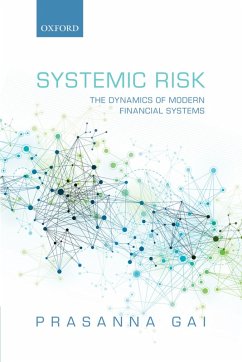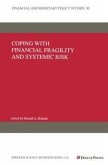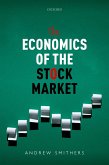Systemic Risk opens new ground in the study of financial crises. It treats the financial system as a complex adaptive system and shows how lessons from network disciplines - such as ecology, epidemiology, and statistical mechanics - shed light on our understanding of financial stability. Using tools from network theory and economics, it suggests that financial systems are robust-yet-fragile, with knife-edge properties that are greatly exacerbated by the hoarding of funds and the fire sale of assets by banks. This book studies the damaging network consequences of the failure of large inter-connected institutions, explains how key funding markets can seize up across the entire financial system, and shows how the pursuit of secured finance by banks in the wake of the global financial crisis can generate systemic risks. The insights are then used to model banking systems calibrated to data to illustrate how financial sector regulators are beginning to quantify financial system stress.
Dieser Download kann aus rechtlichen Gründen nur mit Rechnungsadresse in A, B, BG, CY, CZ, D, DK, EW, E, FIN, F, GR, HR, H, IRL, I, LT, L, LR, M, NL, PL, P, R, S, SLO, SK ausgeliefert werden.









